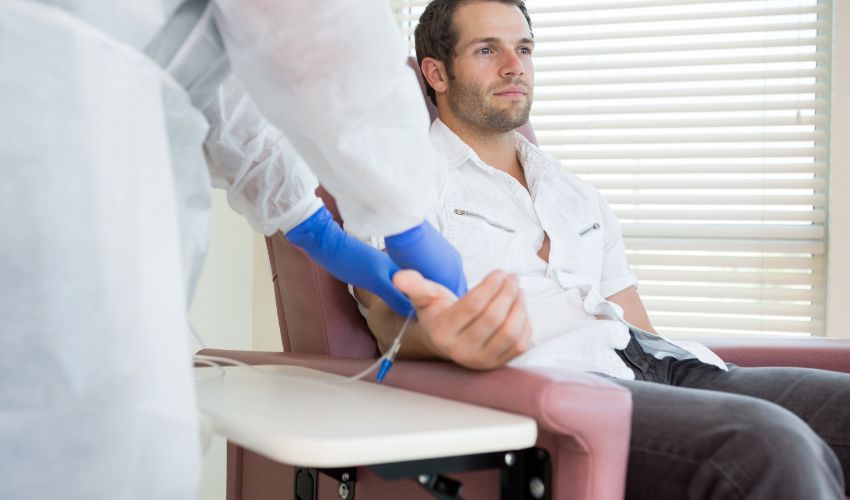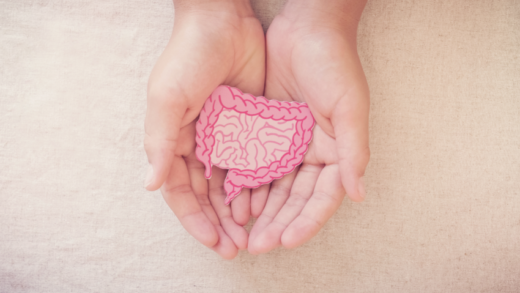Receiving treatment for an illness or medical condition can be a life-saving experience, but it often
When it comes to cancer treatment, many patients are understandably concerned about the potential side effects. While some side effects are unavoidable, there are many strategies that patients can use to manage and minimize them. In this article, we will discuss common side effects from cancer treatment and provide tips for managing them.
Common Side Effects from Treatment:
Nausea and Vomiting
These are common side effects of chemotherapy and radiation therapy. Anti-nausea medications can help, and patients should eat small, frequent meals and avoid foods with strong odors or flavors.

Fatigue
Feeling tired or weak is a common side effect of cancer treatment. Patients should rest when they feel fatigued, but also try to incorporate some physical activity into their routine if possible.

Pain
Cancer treatment can cause pain in different parts of the body. Medications, physical therapy, and other treatments can help manage pain.
Hair Loss
Some cancer treatments can cause hair loss. Wearing wigs, hats, or scarves can help cover hair loss. Some patients also choose to shave their heads to make hair loss less noticeable.
Skin Changes
Radiation therapy can cause skin changes such as dryness, itching, and redness. Moisturizing and avoiding sun exposure can help manage these side effects.
Changes in Appetite
Cancer treatment can cause changes in appetite, including loss of appetite or an increased appetite. Patients should eat a balanced diet and discuss any changes in appetite with their healthcare team.
Infection Risk
Chemotherapy can lower the body’s immune system, making patients more susceptible to infections. Handwashing and avoiding contact with sick individuals can help reduce the risk of infection.
Emotional Side Effects
Cancer treatment can be emotionally challenging, and patients may experience anxiety, depression, or other mood changes. It is important to seek emotional support from loved ones and healthcare professionals.
Managing Side Effects:
In addition to the strategies mentioned above, there are several other ways to manage side effects from cancer treatment:
- Stay hydrated by drinking plenty of water
- Practice stress-reducing techniques such as meditation or yoga
- Get enough rest and sleep
- Avoid alcohol and tobacco
- Stay active, but listen to your body and don’t overdo it
FAQs:
Can side effects from treatment be prevented?
Some side effects can be prevented or reduced by adjusting the dose or schedule of your treatment or by taking medications to manage symptoms.

How long do side effects from treatment typically last?
The duration of side effects can vary depending on the type of treatment and the individual patient. Some side effects may last only a few days, while others may persist for weeks or months.
Are there any natural remedies for managing side effects?
Some natural remedies such as ginger or peppermint may be helpful for managing nausea, but it is important to talk to your healthcare team before trying any new remedies.
How can I manage hair loss during treatment?
Wearing wigs, hats, or scarves can help cover hair loss. Some patients also choose to shave their heads to make hair loss less noticeable.
How can I manage fatigue during treatment?
It is important to rest when you feel fatigued, but also to incorporate some physical activity into your routine if possible. Your healthcare team can also recommend medications to manage fatigue.
Conclusion:
Side effects from treatment can be challenging, but with the right strategies and support, they can be managed effectively. It is important to communicate openly with your healthcare team about your symptoms and concerns, and to seek medical attention if necessary. By taking steps to manage side effects, you can focus on your recovery and improve your overall quality of life during and after treatment.
Remember that everyone’s experience with treatment and side effects is unique, so it is important to find what works best for you. Don’t be afraid to try different strategies or to ask for help when you need it.
If you are experiencing side effects that are affecting your quality of life or ability to complete daily activities, talk to your healthcare team. They can work with you to develop a personalized plan to manage your symptoms and improve your overall well-being.
By taking care of yourself both physically and emotionally, you can get through treatment and move towards a healthier, brighter future. Remember that side effects from treatment are temporary, and with time and patience, you can overcome them and continue on your path towards recovery.






















